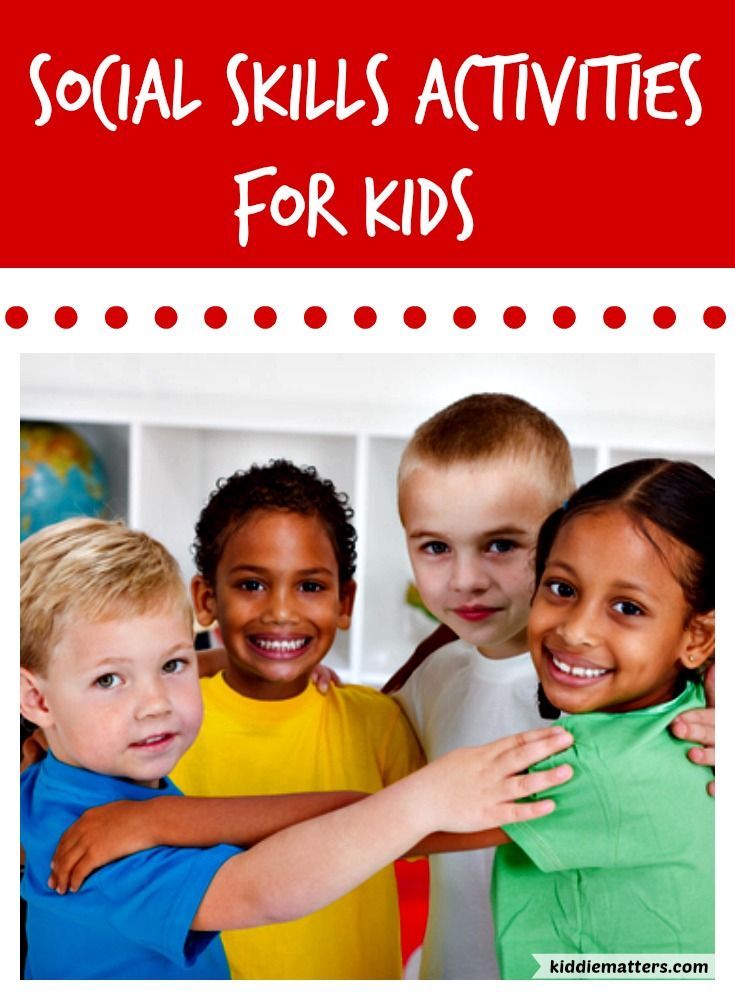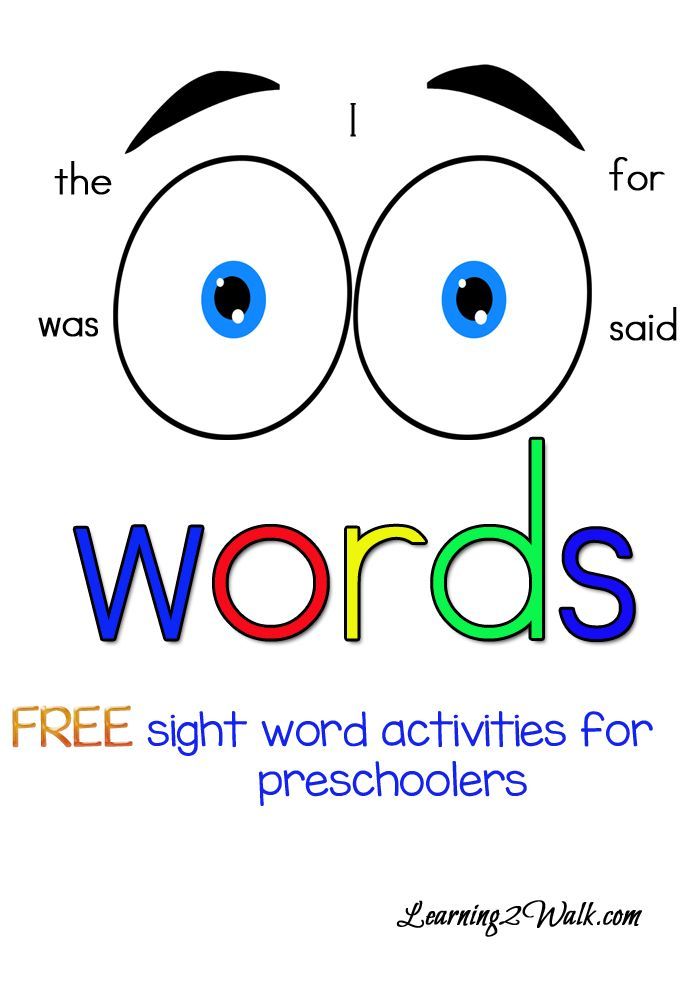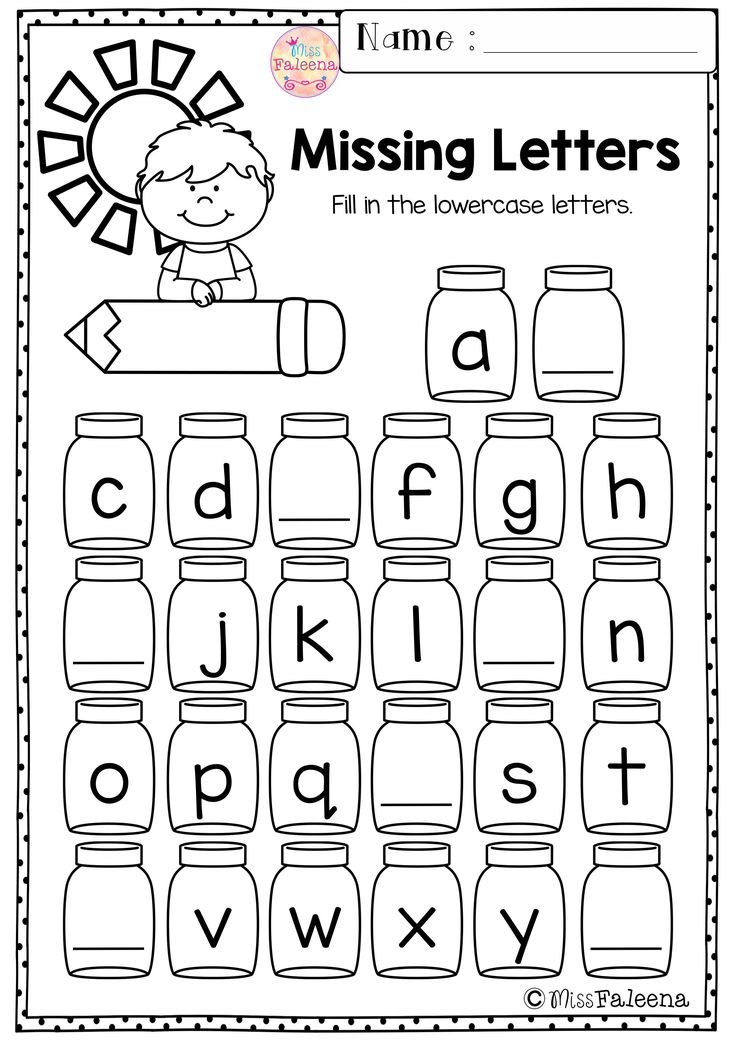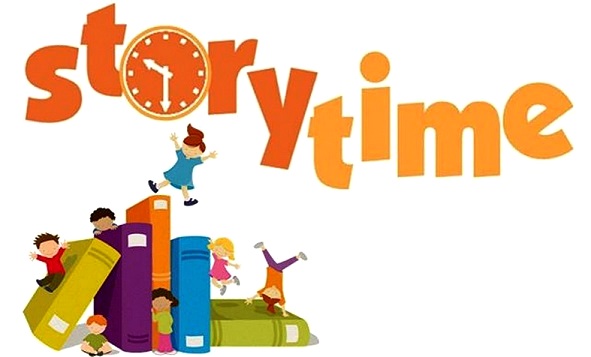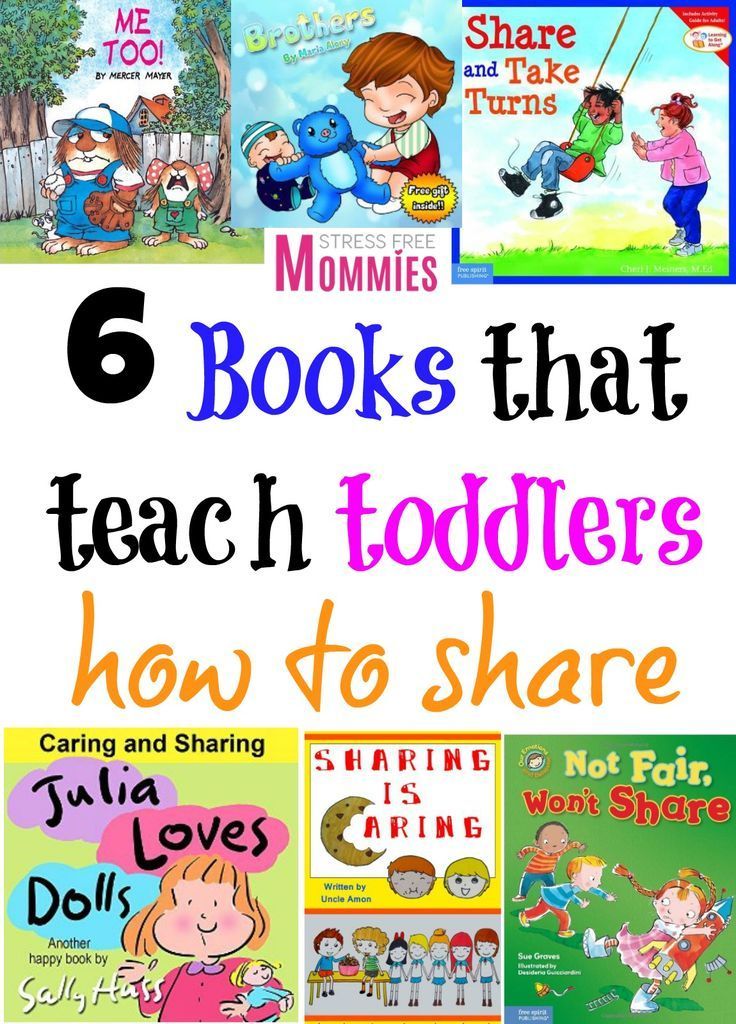Teaching social skills to kids
6 Ways to Improve Your Child's Social Skills
Few things can be more frustrating than watching your child struggle to
make friends or having a difficult time fitting into certain social settings.
There are several steps parents can take to improve their child's social skills.
1. Follow Their Interests
Enjoying others will come more naturally when a child is doing something they are genuinely interested in. Whether it's participating in a favorite sport, playing an instrument they like or being part of a club they're interested in, this is the first step toward building social skills. It also places a child around like-minded individuals that the child will probably feel more at ease with. While it's important to be able to socialize with those of varying interests, starting out with other kids who like the same things is an excellent way to more easily build social skills.
2. Learn to Ask Questions
Sometimes when children get nervous or a conversation lags, they may become more introverted and ultimately struggle in future social situations. According to the Center for Development & Learning there are several ways children can initiate and carry on positive conversations with others. One important way is to ask questions. The best way to find out about others and form connections is to ask questions that specifically pertain to the person the child is talking with. Encourage your child to ask questions that can't be answered with just a yes or no.
3. Practice Role Playing
Pretend-play, with both younger and older children, is a great way for kids to actively practice their social skills. LD Online gives parents practical tips for effective role-playing. Have your child pretend to be the person they have difficulty talking to or getting along with. This will give you an idea of what this person is like, or at least how your child perceives this particular person. Then switch roles to see how your child does when pretending to interact with the person. Suggest ways your child can more effectively talk with the individual.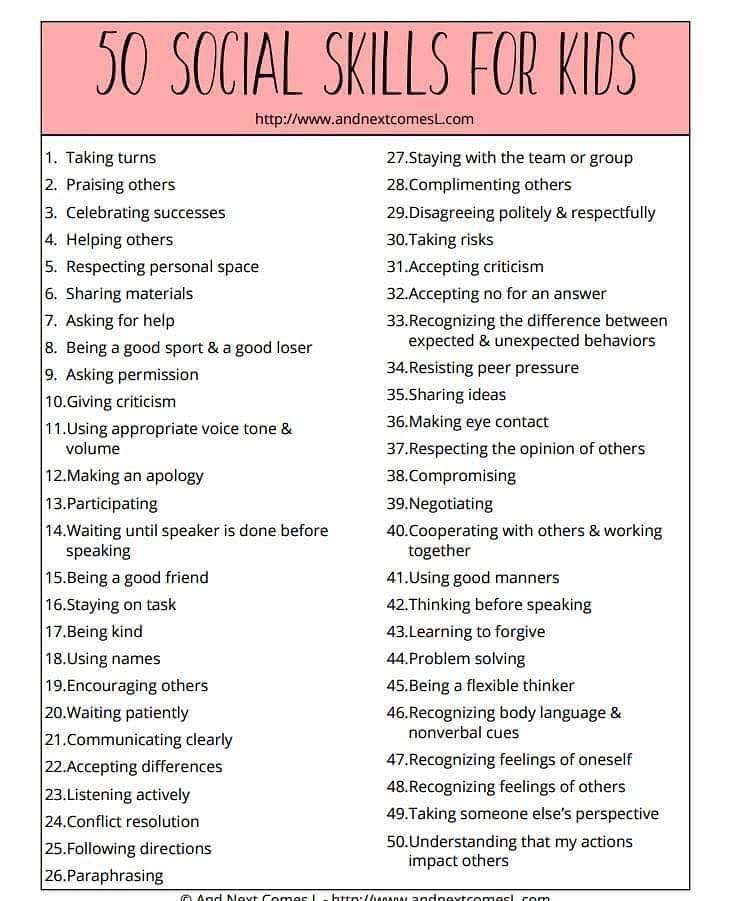 Don't forget to include body language, such as smiling and making eye contact, when advising your child.
Don't forget to include body language, such as smiling and making eye contact, when advising your child.
4. Teach Empathy
If children have a better understanding of how others feel, they are much more likely to feel connected to other people and form positive bonds. Parents suggest teaching empathy by talking about different situations and scenarios with your child. Ask how other people might feel when each of these things happen. Part of teaching empathy is to help children learn how to actively listen to others. This involves focusing on what others are saying and then thinking about what the speaker has said once the conversation is over.
5. Know Your Child's Limits
Some children are simply more social than others. A child who is shy and introverted should not be expected to interact in the same way as a child who is naturally outgoing. Some children are comfortable in large settings, while others find it easier to relate to their peers when in smaller groups.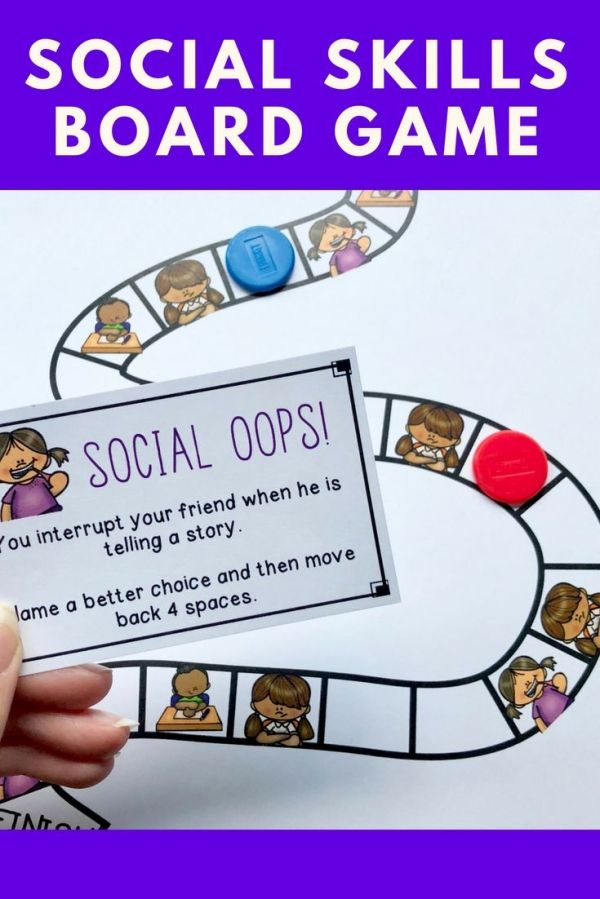 It's also important to understand a child's time limits. Younger children and those with special needs may only feel comfortable socializing for an hour or two.
It's also important to understand a child's time limits. Younger children and those with special needs may only feel comfortable socializing for an hour or two.
6. Be a Good Role Model
It's important to be consciously aware of how you interact with others when your child is watching. Are you asking questions of others and then taking the time to actively listen? Do you show genuine empathy for friends and family in your life? The Center for Parenting Education states that being an effective role model requires conscious effort and forethought. Children are constantly watching the adults in their lives.
It's important to remember that it will take time for your child to develop good social skills. Social skills are something that are developed and improved upon over a lifetime.
Contact us today to schedule an assessment. You can also view the research and results of the program on the website.
8 Important Social Skills For Kids And How To Teach Them
Teaching social skills for kids is one of the most complex, confusing, but rewarding aspects of raising young children.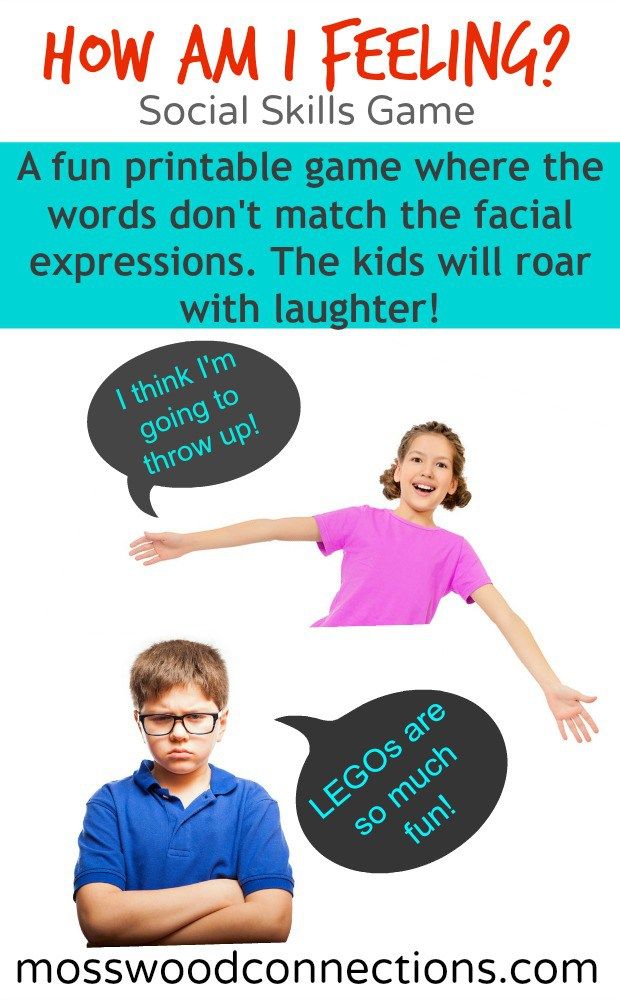
It’s no secret that preschoolers and kindergarteners are naturally egocentric. Even when playing or interacting with others, many children have difficulty sharing, empathizing, collaborating, and cooperating.
HOMER is here to help you learn eight of the most important social skills for kids, as well as how to incorporate them into your family life.
8 Important Social Skills For Kids
1) Sharing
Sharing is a part of daily life. That doesn’t mean it’s easy!
Sharing is a difficult concept for young children to get behind. Toddlers, preschoolers, and kindergarteners have a particularly difficult time, as they are more focused on their needs and desires than the needs and desires of others.
This is normal. The feeling that something “belongs” to them is typically much stronger than their desire to please others.
Even though it’s hard to share, doing so is critical to a child’s social skill development, as it helps them keep and advance friendships.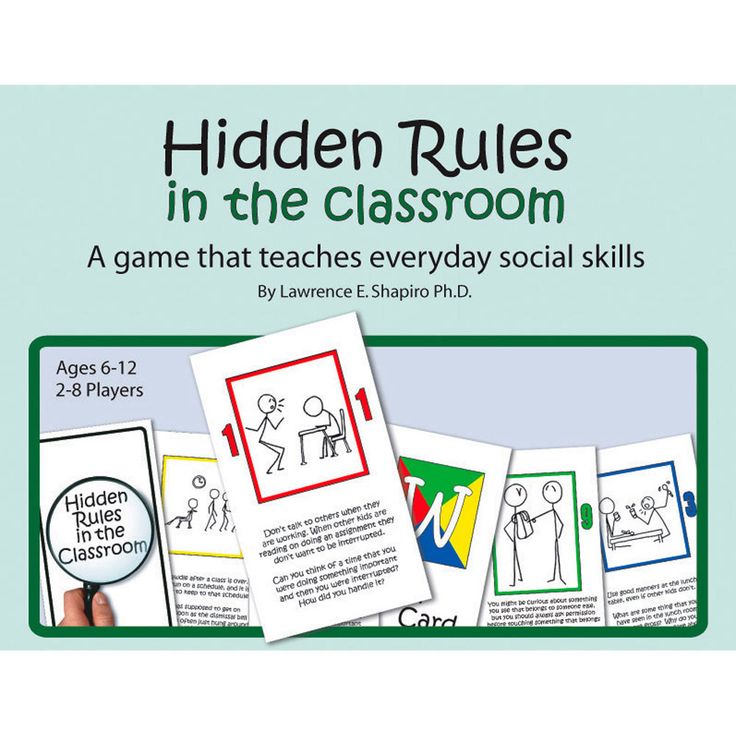 It’s also a great way to bond and show appreciation.
It’s also a great way to bond and show appreciation.
2) Listening
Active listening is an important skill that even some adults struggle with. Properly deciphering and absorbing information requires significant focus.
We all know this can be challenging for young kids, but active listening can strengthen their receptive language skills (the ability to comprehend spoken language).
Receptive language skills help your child:
- Handle social interactions
- Answer questions
- Understand stories
- Comprehend what they’re reading
- Understand gestures
While developing their social skills, your child will come to see how important it is to actively listen when others are speaking.
Paying attention to what someone is saying and responding directly to their statements or questions is a big part of healthy communication.
3) Following Directions
The cousin of good listening skills would be executing the instructions your child heard — a.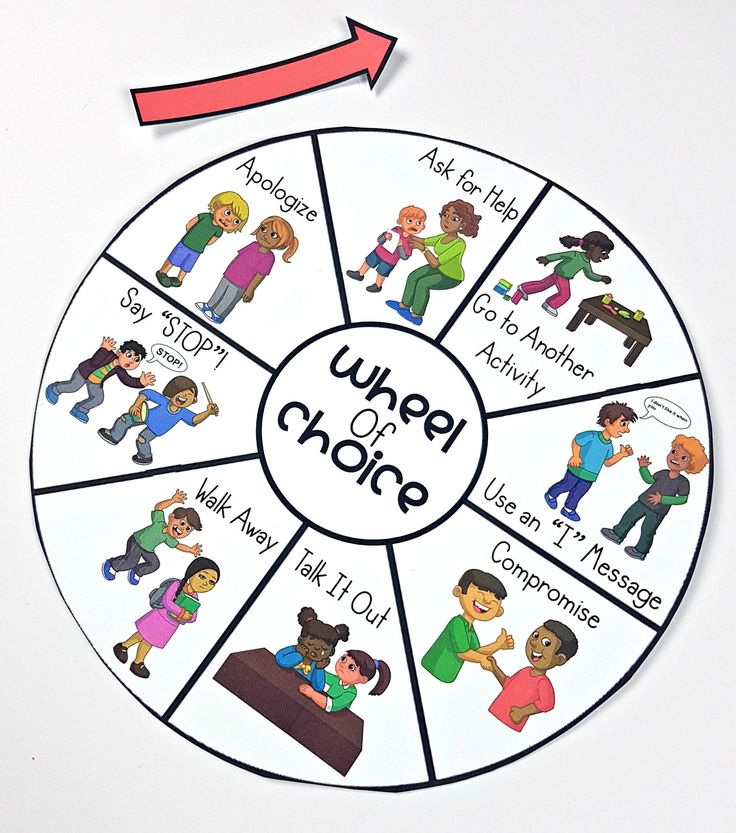 k.a., following directions!
k.a., following directions!
Following directions becomes particularly important once your child enters into their school years.
It’s one thing to follow directions at home with their parents where they’re innately comfortable; it’s another task entirely to follow directions from adult authority figures they may not know well.
Your child will learn how listening and following directions overlap with one another. If they listen well, it becomes easier for them to follow directions accurately. And when they follow directions accurately, they’ll often be rewarded for their hard work!
Keep in mind, however, that multi-step directions are challenging for young children. To help them develop the ability to follow directions, give them one direction at a time.
4) Collaborating And Cooperating
Similar to sharing, your child will learn how to move beyond sharing objects to sharing ideas, stories, and work.
With good collaboration and cooperation skills, children will learn that working in a group gives them a chance to express their ideas and listen to the ideas of others.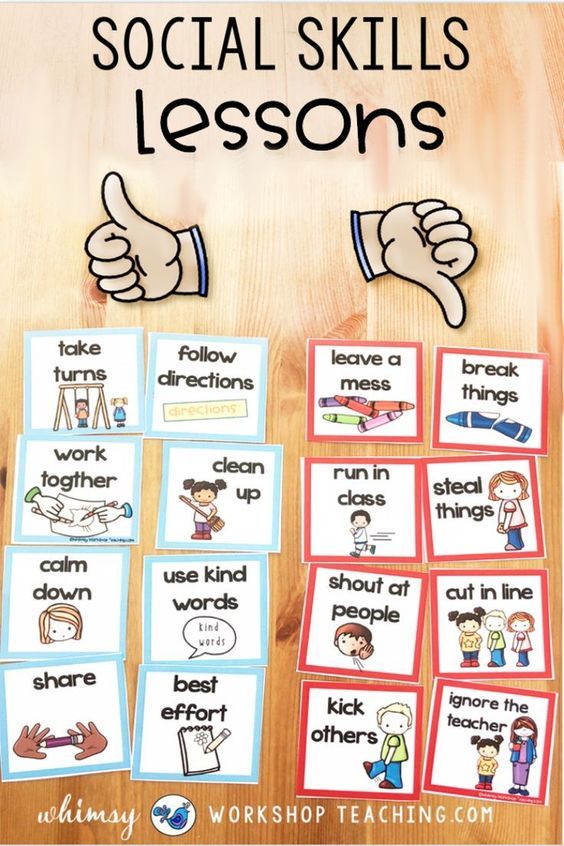 It allows them to see that it can be fun to work on a shared project!
It allows them to see that it can be fun to work on a shared project!
This may sound simple, but for young children, cooperation can often require real effort. It will take time for them to learn to respect others’ opinions even when they’re different.
By working together toward a common goal, kids can advance their sharing skills to include both intellectual and physical (think: cleaning the dinner table with a sibling) feats.
5) Patience
How many times have you heard the cliche, “Patience is a virtue”? Well, we are here to say it one more time!
It’s normal for young children to be impatient. However, patience really is one of the most rewarding social skills for kids.
Patience is critical for many things, including maintaining friendships and relationships and achieving big goals that can only be completed over an extended period of time.
This is where the concept of delayed gratification comes into play. When you help your child understand that good things often take time (not everything in life is microwaveable!), you nurture them into a patient person.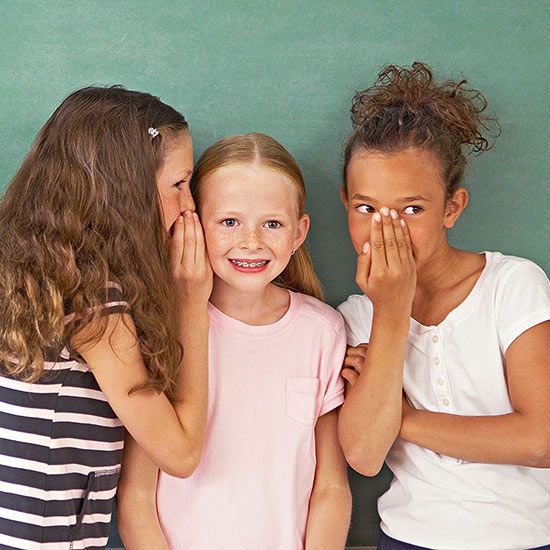
Learning patience takes practice and, you guessed it, patience! Trust that it will come with time (as everything does).
6) Empathy
When we say “empathy,” we’re referring to the traditional definition — the ability to understand and share the feelings of another.
Your child will learn how to appreciate the similarities and differences between their lives and those of people they meet. They will also learn how to empathize with these people, no matter how different they are.
For young children, this can mean small gestures.
For example, if their friend or sibling cries because your child is playing with a specific toy, your child may pause and say, “I know you want to play, too. Don’t be sad. We can take turns!”
But this sense of empathy will likely not appear overnight! Empathy develops over time and across a variety of scenarios.
The easiest way to promote your child’s development of empathy is by showing it in action. When you extend grace to your child often, they will learn how to extend it back.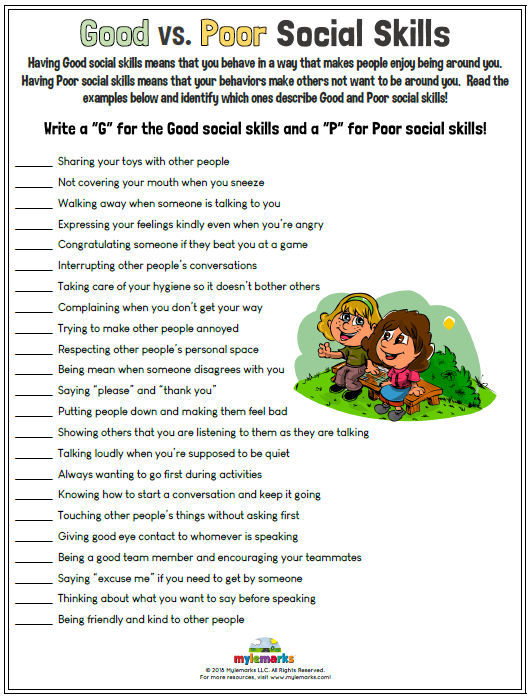
7) Respecting Boundaries
Some people require different emotional and physical boundaries than your child.
This can be a particularly difficult concept to learn, especially for very young children who receive most of their socialization from within the household.
Likely, if your child is extroverted, they may assume everyone is OK with hugs, questions, or lots of chit-chat. In some cases, they may be right! In others, they may accidentally cross boundaries in their efforts to be friendly.
Teaching your child how to ask permission and identify boundaries helps them establish a sense of respect between themselves and others. The same goes for helping them establish boundaries for themselves.
Let your child know that it’s OK to say no to hugs, kisses, or other displays of affection from someone — no matter who it may be — if they feel uncomfortable. Model this idea by asking questions yourself (“Would you like a hug?”).
When they make their boundaries clear and ask for others to do the same, it will make both parties feel much more at-home.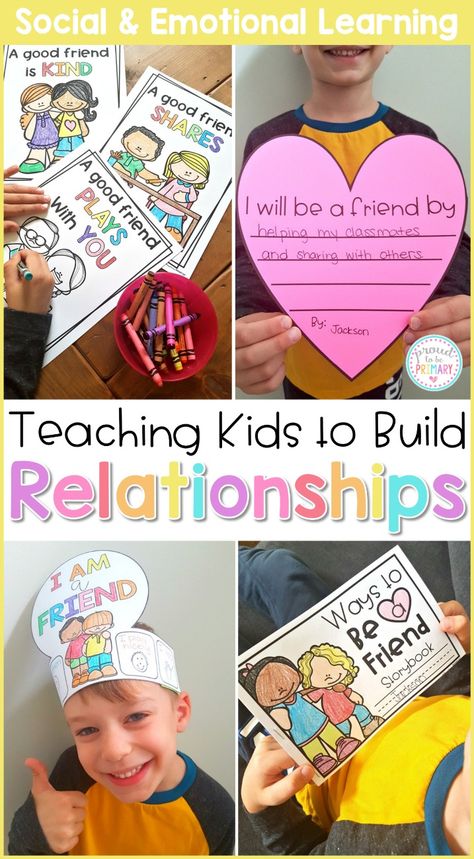
8) Positivity
Working on positivity can make it exponentially easier for your child to tackle many of the other social skills for kids we’ve mentioned, especially patience, boundaries, listening, and sharing.
With a positive attitude, your child will find it easier to make and keep friends, succeed in school, and achieve their goals.
The easiest way to demonstrate positivity is by modeling it. The more positive you are about your child’s social skill development (including their inevitable slip-ups), the more reassured and positive they will become themselves.
This doesn’t mean you have to be positive all the time. In fact, a healthy amount of honest criticism can be beneficial in helping your child learn to express their feelings.
To do this, start with your own emotions. Let them know how you’re feeling and how you’re managing it in real time if you can. Kids need to know it’s OK to be sad, angry, or mad sometimes and how to handle it.
How To Teach Social Skills To Kids
Now that you know what social skills for kids to include, how do you go about teaching them at home? Let’s take a look!
Normalize Mistakes
Your child should know that you do not expect perfection.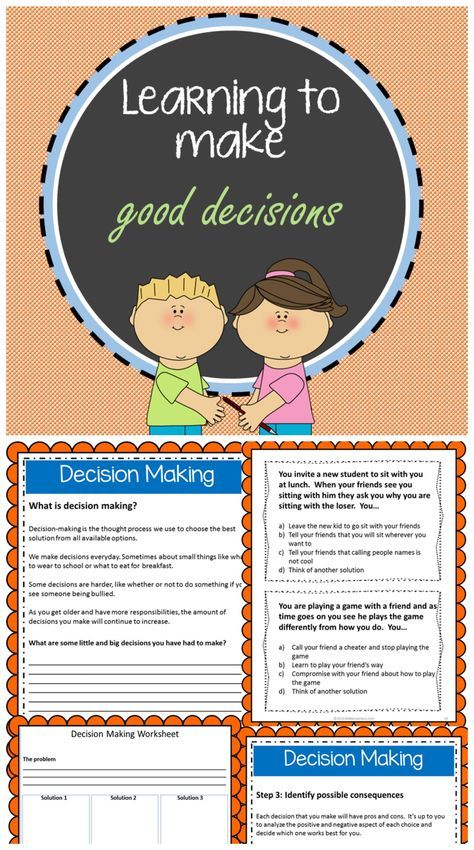 There is no way to execute all of these social skills every time, everywhere, without mistakes.
There is no way to execute all of these social skills every time, everywhere, without mistakes.
That is OK! In fact, it’s encouraged. Mistakes are normal; they’re how we learn what went right or wrong.
Make sure you normalize this for your child. If they know all humans learn lessons this way, it’ll be easier for them to push through the sting of a mistake and try again.
Encourage Sharing (Without Violating Boundaries!)
Although sharing is great and should be encouraged, there may be some things that are special to your child that they don’t want to share. This can be especially true of stuffed animals, blankets, or special toys.
This is OK, too! It’s great for your child to set boundaries that you and other children respect. To encourage sharing, try not to force it.
Encouraging without forcing also demonstrates to kids how boundaries can be created, acknowledged, and respected between people.
This will motivate them to share with those around them by taking comfort in the fact that what is special to them has been kept sacred and separate. It will also encourage them to be direct about their and others’ boundaries when it comes to play, school, or emotional issues.
It will also encourage them to be direct about their and others’ boundaries when it comes to play, school, or emotional issues.
Check Their Listening
During social interactions within your own family or outside of it, pay attention to your child’s listening skills. You can observe them to see if they are listening carefully.
Do they seem engaged? Are the asking questions?
And remember it is just as important to listen to your child. This shows them that what they are saying is important and encourages them to listen to you in return.
Think About How You Give Directions
In teaching social skills for kids, the parent or authority figure is responsible for ensuring the directions they give are something a young child can execute successfully.
When giving instructions, be clear, firm, and gentle. As we mentioned earlier, children have a very difficult time executing tasks with many directions at once. Start with one direction at a time that your child can focus on.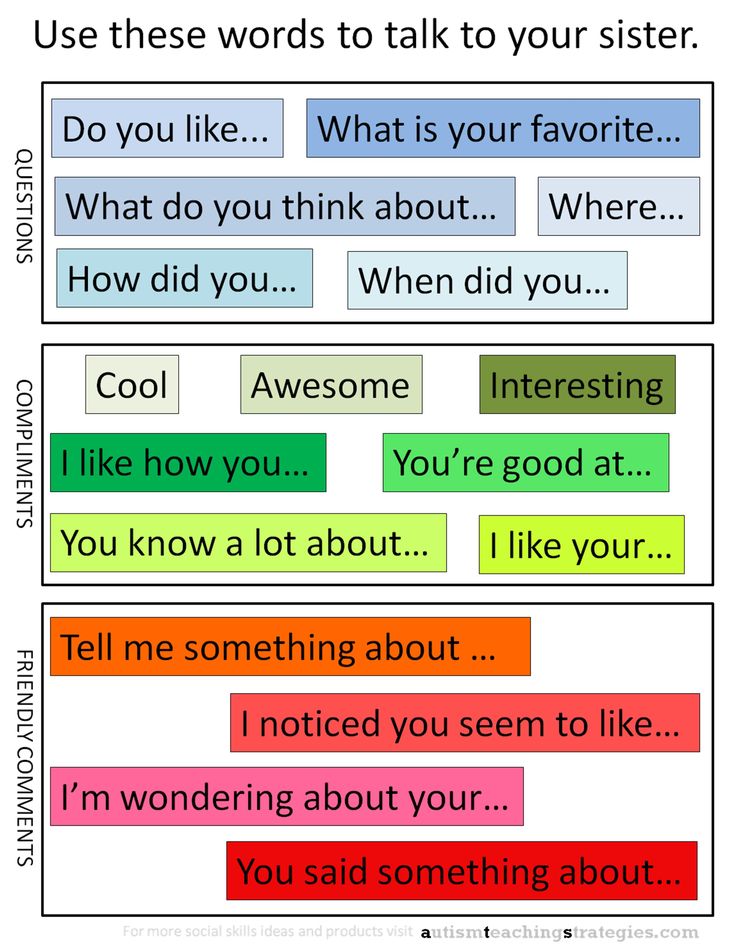
When giving instructions, have your child repeat what you want them to do. Only give an additional instruction when the first has been completed. Repeat until the task is complete.
Your child can give you directions, too! That way they have a sense of what it takes to delegate, manage, and execute a task from start to finish.
Give Empathy To Get Empathy
Show your child that you think about other people’s emotions, too! This is less of a teaching moment and more of an authentic display of empathy.
If you see that your child is expressing an emotion, validate it for them. “Oh, I see that you’re excited. I love that you’re so eager and happy to do this!”
You can acknowledge negative emotions, too. For example, you might say, “I know that must make you angry. Do you know how I can tell? What can we do together to make you feel less unhappy?”
This not only helps them feel seen and heard in the moment, but it also gives them a direct example of how to tackle empathy with others in similar situations.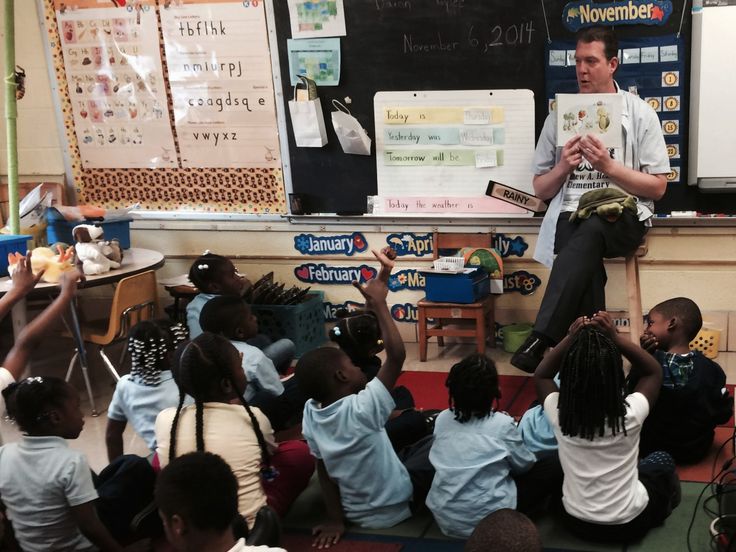
Social Skills For Kids Are Essential
The more your child experiences the benefits of social skills, the more intuitive these skills will become for them. However, all children learn at different rates. With practice (and patience!), we know they’ll get there.
The Learn with Sesame Street app is an effective tool that helps kids learn and develop their social and emotional skills. With the help of their Sesame Street friends, kids learn how to express their emotions, empathize with others, and create healthy relationships. Explore the Learn with Sesame Street app today!
Author
Social Skills Education - Caring Alpha
School boards often ask me to help them find a good social skills program for their students. They are well-intentioned, they want to help their students learn to interact with each other, they want a more relaxed atmosphere in the classrooms, corridors and school grounds.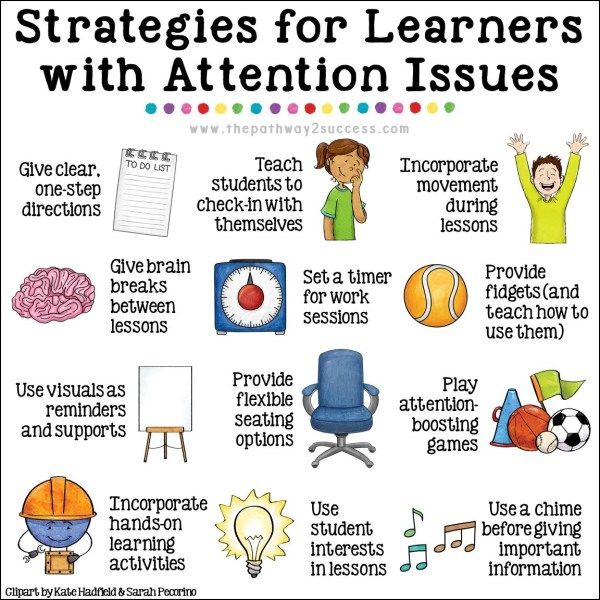
At first, I took these requests seriously and even created a whole list of the most successful programs, in my opinion. I hoped that, in addition to children learning social skills, teachers would understand that teaching should be done gradually, with a lot of practicing skills in practice, just as is the case with academic subjects.
However, ever since I became familiar with Gordon Neufeld's developmental paradigm, which incorporates the latest brain research, I have clearly seen the fallacy of trying to teach children something they are not yet ready for.
The formation of the ability to interact with other people, to take into account not only one's own, but also other people's needs, is a long and gradual process. It depends on developing the capacity for integrative thinking, and not just on knowing how to behave correctly. Integrative thinking is linked to the development of the prefrontal cortex, which recent research suggests is just beginning to develop in elementary school students.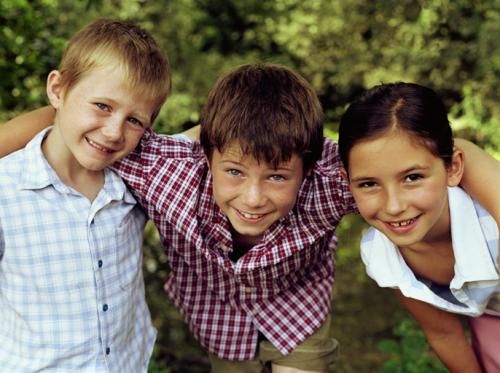 This process will be completed when they are in their twenties. Namely, the prefrontal cortex allows us to keep in mind both our own needs and the needs of other people, which is necessary in any social interaction.
This process will be completed when they are in their twenties. Namely, the prefrontal cortex allows us to keep in mind both our own needs and the needs of other people, which is necessary in any social interaction.
While the prefrontal cortex is being formed, children cannot always control their emotions, especially strong ones. And being in a crowded corridor, in the bustle of a playground or in a noisy dining room, it is very easy for a child to get overexcited. The skills they are being taught just seem to "fly out of their heads" and they react instinctively, not rationally. Of course, this upsets us: well, why don't they DO the right thing, they KNOW HOW? But do we, adults, always DO the right thing, having already, we will assume, a developed brain, and KNOWING HOW to act? I can't say that about myself.
If your school has a social skills development program, go ahead, but remember that such a program will not "cure" the underlying condition - natural or situational immaturity, everyone is different.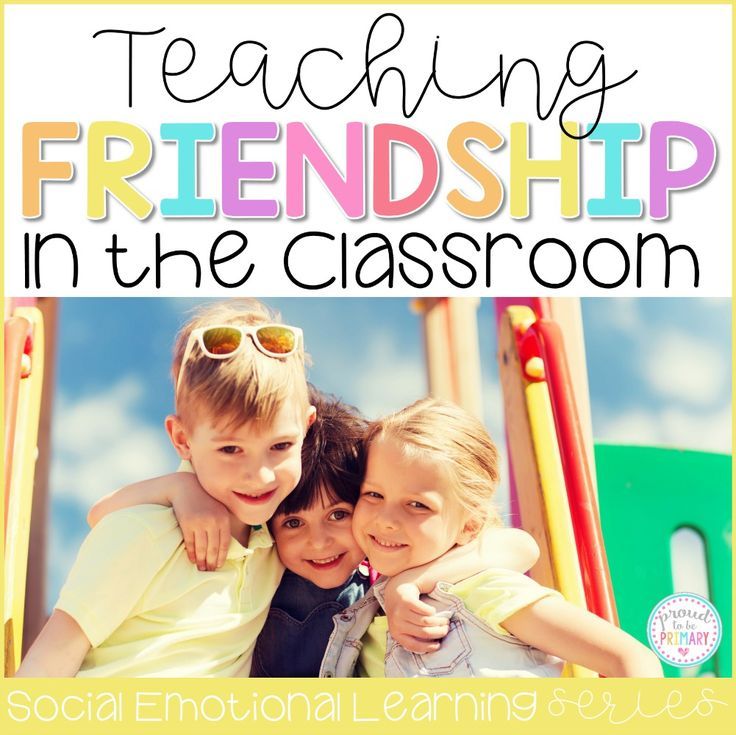 Self-control sheets and the method of consequences will not accelerate the process of development.
Self-control sheets and the method of consequences will not accelerate the process of development.
Although studies do show that schools that use social skills programs reduce child misbehavior, these programs require a lot of effort and commitment, but even then the success is only temporary.
If you are looking for a way to help your students “do better”, I would suggest investing energy and resources in teaching school staff what children really need to develop: proper relationships with adults, discipline that does not divide, but also structure and order to compensate for natural immaturity and keep children out of all sorts of trouble.
Gordon Neufeld has a large number of DVDs as well as distance learning courses that would benefit school staff. Use them, your children will be very grateful to you.
In the first months of the school year, educators have the most difficulties with children who have behavioral problems and insufficiently developed attention.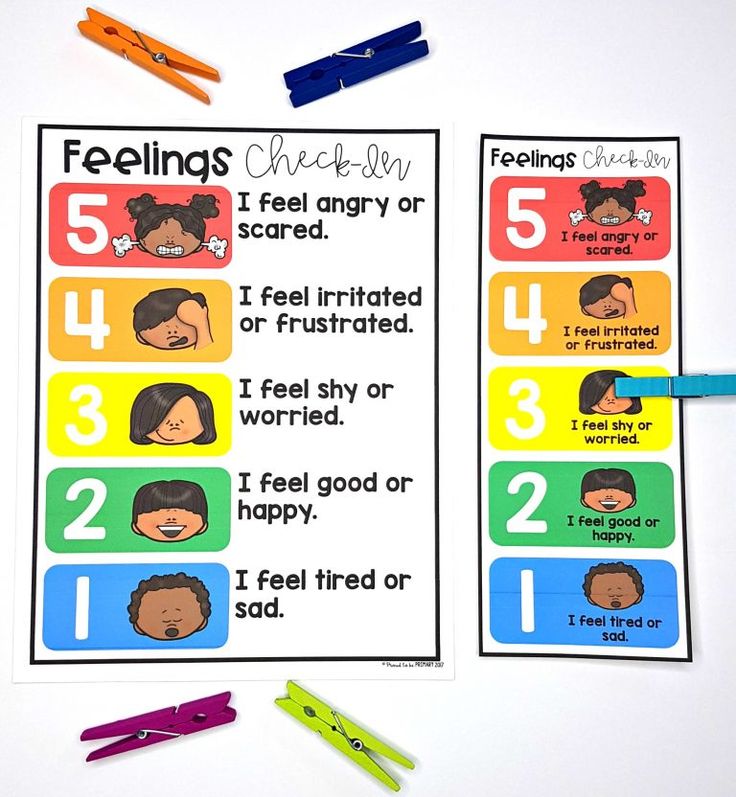 In fact, everything is simple: if a child does not know how to keep a queue, listen and sit quietly in a group, how can he learn the educational material? That is why at the beginning of the year so much time is devoted to learning and developing the basic social skills of babies.
In fact, everything is simple: if a child does not know how to keep a queue, listen and sit quietly in a group, how can he learn the educational material? That is why at the beginning of the year so much time is devoted to learning and developing the basic social skills of babies.
Fortunately, the previous experience of social interaction, both at home and in the younger groups of the kindergarten, helps the child to adapt to the changes that have occurred with the team after the summer vacation period. As soon as the kid has mastered the basic skills of social interaction and behavior in a group at a sufficient level, he will be ready to focus on the educational material. That is, a child will be able to gain more knowledge if the approach to the development of his social, emotional and cognitive (academic) skills is maximally balanced by his parents and teachers of preschool education.
Recent brain development research has shown that a child's ability to interact with other children, control and express feelings, and solve basic problems independently is just as important to academic success as academic skills.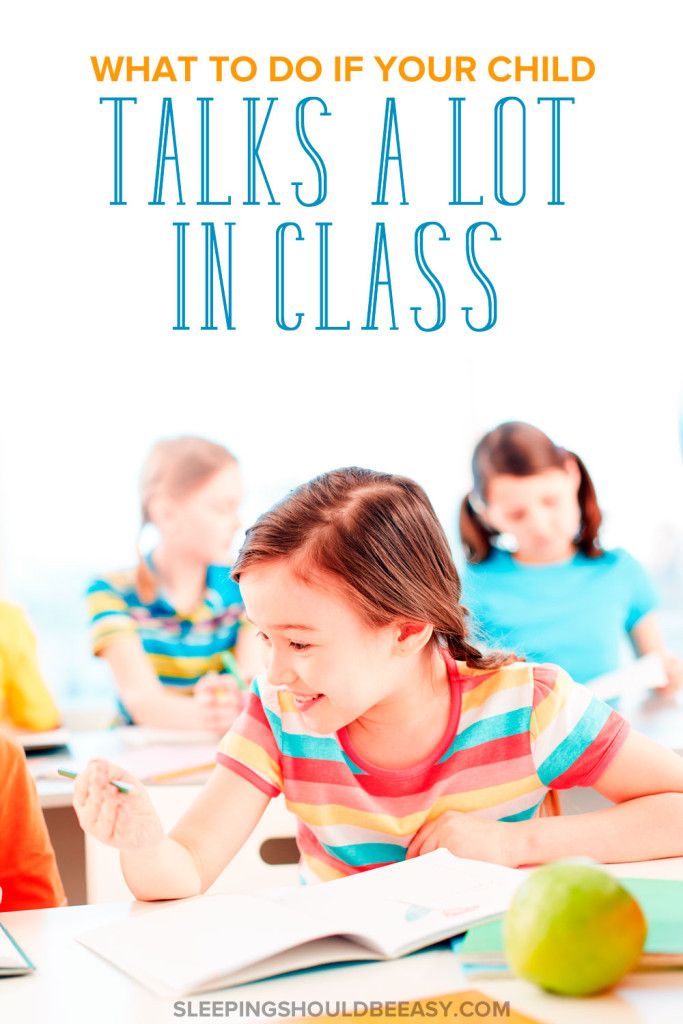 The pathways in the brain necessary for successful learning are developed through positive interaction with other people! Caregivers use this data to help children build relationships with each other, share and care, listen and speak in groups, and feel confident to take on new challenges.
The pathways in the brain necessary for successful learning are developed through positive interaction with other people! Caregivers use this data to help children build relationships with each other, share and care, listen and speak in groups, and feel confident to take on new challenges.
Early Basic Skills
Here are some examples of what good teachers set at the beginning of the school year in senior or pre-school. Parents can adapt them in their family and help the child develop in this direction, being in the comfortable conditions of their own family and at home.
- Self-confidence and self-esteem: is one of the first skills that caregivers focus on developing. It is important to instill in the child a positive feeling about himself - himself as a person and a participant in social interactions. This is a skill that will not lose its value throughout the child's life and will help him feel capable and skillful both now and in future studies.

- Collaboration: games, stories and songs help a child learn to work with other children - not an easy task at this age! Collaboration for a baby is the ability to empathize and get along with other people.
- Curiosity: Perhaps one of the most important skills a child needs to develop at this stage is a thirst for learning. The caregiver can use a wide range of interesting materials and ideas to engage your child's natural curiosity. Recent studies show that new or unusual activities and materials (compared to already familiar ones) engage the brain more, forcing it to pay close attention to the information offered.
- Communication: Expressing yourself and your thoughts, feelings and knowledge about the world is one of your child's key skills. It underlies all reading, writing, math, and science skills. If a child can confidently express his thought or opinion, he becomes more open to learning and developing thinking.
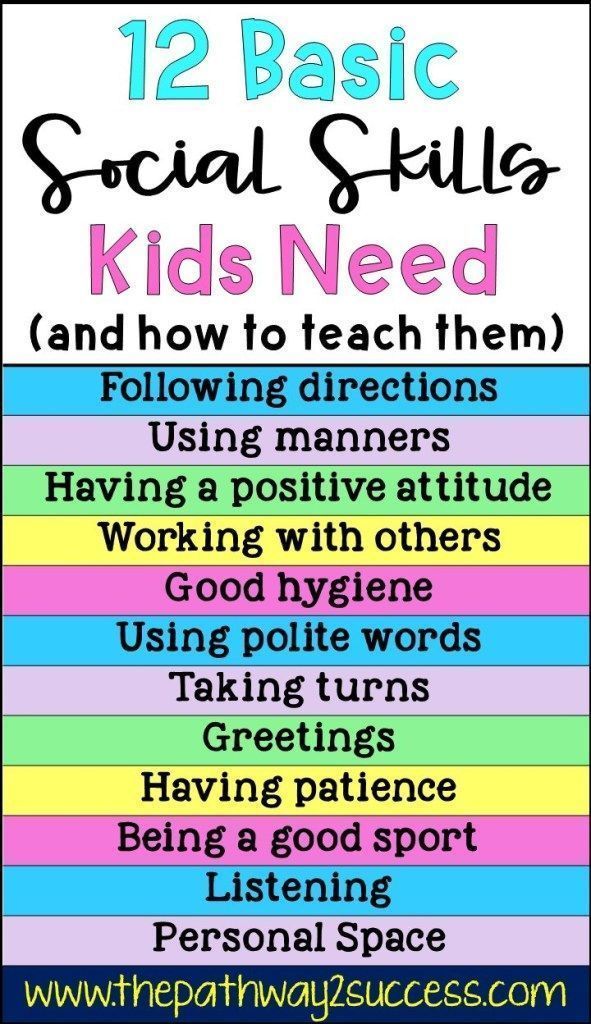
How Parents Can Help Develop These Skills
Help your child develop critical social and emotional skills by connecting with kindergarten friends in your own home. Ask the kid who he would like to invite to visit to play. It is often easier for children to build friendships in their own one-on-one space than in a kindergarten. Many educators find that a child who finds it difficult to make friends or interact in a large group is more likely to forge a close bond with a new friend at home. These relationships can then be transferred to the conditions of the kindergarten. Once the child has established a bond with one classmate, it will be easier for him to establish friendships with other children.
The meaning of play
Play is important work for your little child. He grows, learns and explores the world through play. This happens through complex gameplay that encourages him to think, solve problems and use his imagination and fantasy.